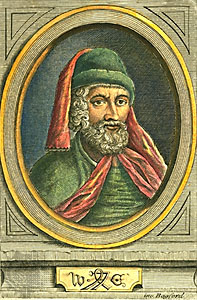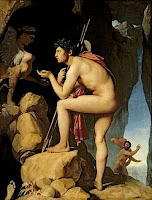Prefix/Root/Suffix
predict (v.) to say that an event or action will happen in the future
example:I predict that it will rain tomorrow.
prepare (v.) to make or get something or someone ready for something that will happen in the future.
example:I am preapring the test now.
con-:together/with
conclude (v.) to end a speech, meeting or piece of writing.
example:We concluded ourmeeting at 9 o'clock.
ann-:year
annual (adj.) happening once every year, or relating to a period of one year
example:Employees are entitled to an annual paid leave of fifteen days.
anniversary (n.) the day on which an important event happened in a previous year.
example:Today is the anniversary of the day I married you.
ac-:take it
acknowledge (v.) to accept, admit or recognize something, or the truth or existence of something.
example:I acknowledge that her criticism is correct.
acquire (v.) to get something
example:I acquire knowledge from the teacher
mor-:death
mortify (v.) to make someone very embarrassed.
example:The teacher was mortified by his own inability to answer such a simple question.
English has developed over the course of more than 1,400 years. The earliest forms of English, a set of Anglo-Frisian dialects brought to Great Britain by Anglo-Saxon settlers in the fifth century, are called Old English. Middle English began in the late 11th century with the Norman conquest of England. Early Modern English began in the late 15th century with the introduction of the printing press to London and the King James Bible as well as the Great Vowel Shift.Through the worldwide influence of the British Empire, modern English spread around the world from the 17th to mid-20th centuries.
*French(word)+Anglo-Saxon(grammar)=English
Three Important Person
 An English merchant, diplomat, writer and printer. He is thought to be the first English person to work as a printer and the first to introduce a printing press into England, which he did in 1476.He was also the first English retailer of printed books.
An English merchant, diplomat, writer and printer. He is thought to be the first English person to work as a printer and the first to introduce a printing press into England, which he did in 1476.He was also the first English retailer of printed books.2.King James I
 King James Bible is an English translation of the Christian Bible for the Church of England begun in 1604 and completed in 1611. In 1612, the first King James Version using Roman Type was issued. This quarto version is only second to the 1611 folio KJV.In January 1604, James I convened the Hampton Court Conference where a new English version was conceived in response to the perceived problems of the earlier translations as detected by the Puritans, a faction within the Church of England.
King James Bible is an English translation of the Christian Bible for the Church of England begun in 1604 and completed in 1611. In 1612, the first King James Version using Roman Type was issued. This quarto version is only second to the 1611 folio KJV.In January 1604, James I convened the Hampton Court Conference where a new English version was conceived in response to the perceived problems of the earlier translations as detected by the Puritans, a faction within the Church of England.3.Samuel Johnson
 An English writer who made lasting contributions to English literature as a poet, essayist, moralist, literary critic, biographer, editor and lexicographer. Johnson's A Dictionary of the English Language was published in 1755. It had a far-reaching effect on Modern English and has been described as "one of the greatest single achievements of scholarship". This work brought Johnson popularity and success. Until the completion of the Oxford English Dictionary 150 years later, Johnson's was viewed as the pre-eminent British dictionary.
An English writer who made lasting contributions to English literature as a poet, essayist, moralist, literary critic, biographer, editor and lexicographer. Johnson's A Dictionary of the English Language was published in 1755. It had a far-reaching effect on Modern English and has been described as "one of the greatest single achievements of scholarship". This work brought Johnson popularity and success. Until the completion of the Oxford English Dictionary 150 years later, Johnson's was viewed as the pre-eminent British dictionary.*Dictionary:1806,Noah Webster wrote adictionary with new easier American spellings.
Vedio:What is literature for?








